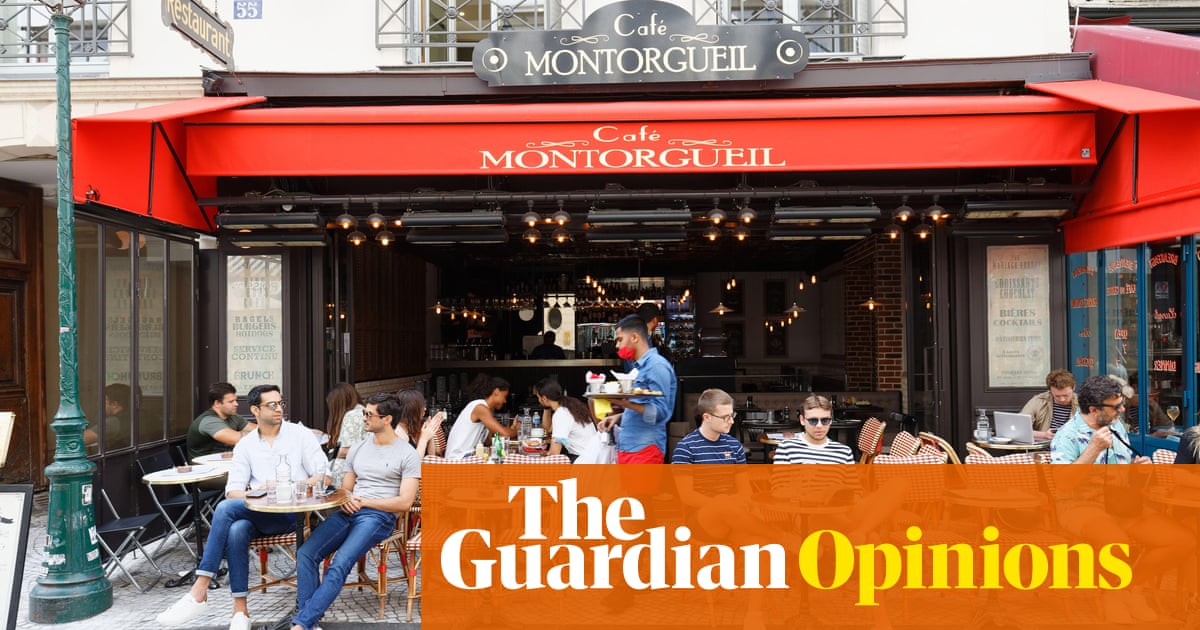
I’ll admit, it’s much stranger to do a “dry June” or a “dry July” than a “dry January”. As a friend from London quipped to me on a recent visit to Paris, she doesn’t so much expect to reach August with a summer beach bod, as a summer belly, the fruit of too many crisp beers at barbecues.
In Paris, especially, it’s easy to find yourself slipping from terrace to terrace in evenings that stay light until late, an apéro here, a glass of wine there. It’s not a city that drinks to excess – but it does perhaps drink excessively, especially with a craft beer industry worthy of pulling market share away from wine and bobo wine bars fighting back with bright and energetic natural wines scoured from across the continent.
But when another friend asked me if I would join her on a month-long alcohol fast in the lead-up to her bachelorette party and wedding, I said yes, and rediscovered something extraordinarily simple: the citron pressé.
Even if it’s not on the menu, any brasserie worth being at will be able to serve you a citron pressé. After all, it’s just a deconstructed lemonade (in practice, though, it’s so much more than that). The freshly squeezed lemon juice will most likely come in a tall, slender glass, which it fills by at least two-thirds – perhaps on a silver tray – along with a carafe of water and a dish of sugar.
On a first dry-apéro out, at a nondescript terrace facing a crowded rue Montorgueil, I ditch the sugar and top off the glass with water. For someone who grew up in the US, this, perhaps, is the least American thing about me: every time I cross the Atlantic, food goes from straight-up saccharine to “why the hell would they put sugar even in the pizza sauce?”
As gen Z, in particular, turns away from alcohol, France is, perhaps unexpectedly, somewhat at the forefront of a revolution in crafting non-alcoholic drinks. There is JNPR, an imitation gin distilled from juniper berries. Or Amazaké Ya, a slightly sweet, fermented rice drink, made locally from the leftover mash from producing saké (in this case, from French riz de camargue).
Upmarket cocktail bars now almost universally offer mocktails crafted with the same attention, creativity and daring as the rest of the menu, mixing drinks with ingredients such as olive brine, butterfly pea tea, camomile and Szechuan pepper. But with the immediate and then receding bitterness of a citron pressé comes a forced moment of mindfulness that doesn’t exist with some other non-alcoholic substitute drink – even the simple kinds, such as ginger ale or kombucha (also a wonderful substitute for beer), which arrive in their final consumable form.
The citron pressé is tart – that’s the point, to sip it slowly, the way you might a cocktail or a glass of wine – and so purely lemon. The tip of my tongue tingles, and I imagine my veins now coursing with vitamins. After a few more sips create a bit more space in the glass, I pour in some more water, and then repeat.
Going dry for a month wasn’t some big challenge bringing a sense of accomplishment at the end. My friends all nodded their heads nonchalantly as I abstained. But sometimes a pause can draw your attention elsewhere and leave you unexpectedly refreshed. Kind of like a citron pressé on a French terrace in the summer, sitting at a round table with its absurdly small Duralex water glasses, and the sun beating down on Paris stone.
Alexander Hurst is a France-based writer and an adjunct lecturer at Sciences Po, the Paris Institute of Political Studies












